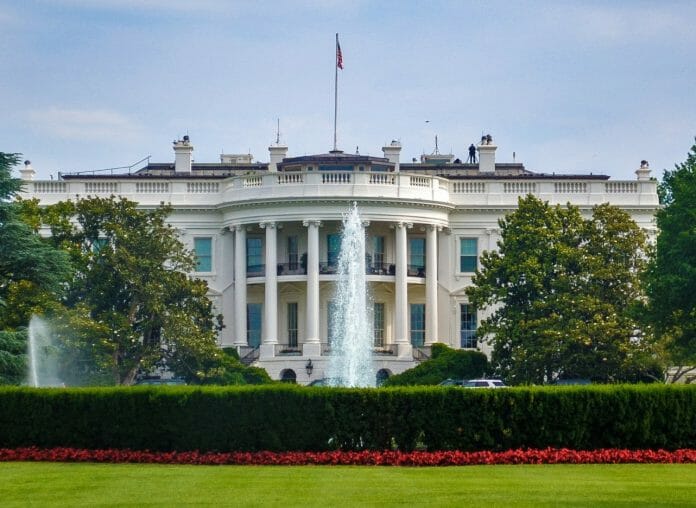By Anbound Malaysia
After swearing in as the new Secretary of State for the US, Anthony Blinken spared no time to reach out to its two Southeast Asian allies, the Philippines and Thailand, on the need to reaffirm their defense alliances against the backdrop of an emerging China in East Asia. To his counterpart, Teodoro Locsin Jr., in Manila, Blinken stressed the role of the Mutual Defense Treaty (MDT) between both countries as the cornerstone against any armed attack of the Philippines in the Pacific (including the South China Sea). Unlike the Philippines, however, Blinken’s call to his Thai counterpart, Don Pramudwinai, resulted in a watered-down consensus that has less specific goals in mind. Apart from affirming the importance of their bilateral defense alliance, both sides also pledged to work together in advancing the shared prosperity, security and values in the Indo-Pacific region conveniently, without naming China as their raison d’etre of cooperation as had been the case with the Philippines.
The Context of Malaysia
For Malaysia which is not an ally of the US, such reaffirmation of defense alliance certainly does not apply to this country that has its own China policy as well as its long-standing stance on the South China Sea dispute. That said, this does not mean that there is no avenue for both US and Malaysia to work together as equal partners in the three dimensions of politics, economics and security. In fact, the largely security-skewed US-Malaysia ties will be revitalised if the Biden administration plays its cards well in the next four to five years.
In light of Malaysia’s ongoing political uncertainty, it is fair to say that any attempt by the new Biden administration to foster long-term ties with Malaysian political elites will be challenging to start with. As such, Washington must continue engaging with the Malaysian politicians from three main divergent camps of the day, namely, Perikatan Nasional (PN), Barisan Nasional (BN) and Pakatan Harapan (PH). Needless to say, such an approach will help the political elites from the US and Malaysia to recognize each other’s perceptions and stance on security and foreign policy issues in comprehensive terms while at the same time, also conducive in fostering mutual trust with whoever will rule the Southeast Asian nation after the incoming snap election.
Similarly, economic ties between Malaysia and the US will remain important as the latter is the former’s third largest trading partner and largest foreign investor in 2019. As such, the new Biden administration could intensify its economic engagement with Malaysia by injecting new dynamism to SelectUSA initiative and the Malaysian Global Innovation and Creativity Centre program that is established during the Obama administration. What the Biden administration should acknowledge here is that there are two opportunities for the US to revitalize existing business linkages with the Malaysian counterparts at this juncture.
First, the US can attract more Malaysian small and medium enterprises to invest in the country by having special policies for the latter to engage in the medium to lower supply chain of green technologies – a crucial factor for the Biden administration’s pivot to a green economy in consideration of Washington’s return to the Paris Climate Agreement. The other is for the US to allocate a certain number of Malaysian youth entrepreneurs who can partner the American multinationals for business start-ups, be it in Malaysia, wider ASEAN or the US. With a special program, both countries can decide for a certain number of Malaysian young entrepreneurs selected for this purpose annually and with this platform, the former can tap on the capital of the American multinationals for their success and expansions while the latter can own their stakes on the future technologies that matter in Malaysia, wider ASEAN or the US.
Unlike political and economic relations, Malaysia-US security ties remained to be the landmark of overall bilateral relations due to the China factor in the South China Sea. With Beijing continued to be dominant in the contentious sea, security cooperation with the US would remain significant and necessary for Malaysia in the long run. In this regard, it is not surprising to see Malaysia continuing its participation in the annual Cobra Gold military exercise as one of the beacons of defense cooperation between Putrajaya and Washington. On the other hand, the window of opportunity is also there for Malaysia to obtain more maritime assets from the US to boost its capability and capacity in the South China Sea. With 12 ScanEagle unmanned aerial vehicles (UAVs)) delivered in batches from 2019 to 2022, more security cooperation of such nature are expected as both countries can utilize Washington’s Maritime Surveillance Initiative (MSI) program for their respective goals.
In all, US-Malaysia relations are skewed towards the security dimension relative to the other two dimensions, political and economic. If the Biden administration is serious in revitalizing the overall bilateral relations that was largely focused on the security dimension during the Trump era, Washington needs to balance such tilted relationship via meaningful and tangible engagements with wider segments of Malaysian society in both political and economic dimensions. This will then path the way for stronger bilateral ties in the coming years.
Anbound Malaysia is part of Anbound China, a leading independent think tank based in Beijing. The think tank is also a consultancy firm working with the corporate players in China-ASEAN cooperation. For any feedback, please contact: [email protected]. http://www.anbound.my/









